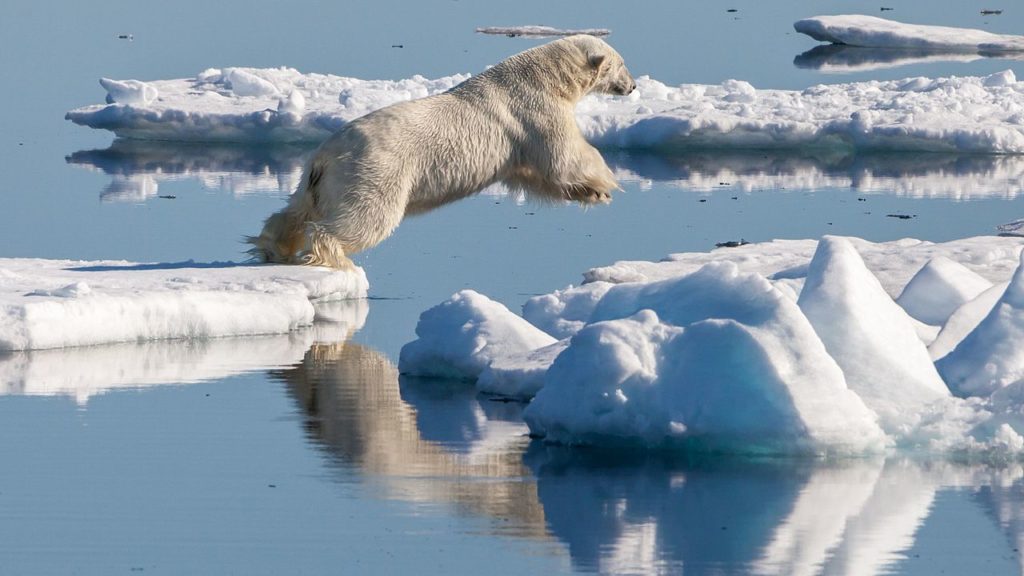The European Commission and the External Action Service published on Wednesday a document on their approach for a stronger EU engagement for a peaceful, sustainable and prosperous Arctic.
According to their joint Communication, the Arctic region is of key strategic importance for the EU in view of climate change, raw materials as well as geostrategic influence. The communication is described as a response to these geopolitical, environmental, economic, security and social challenges and opportunities.
The EU will establish a European Commission office in Greenland, which will raise the profile of Arctic matters in the EU's external relations. EU funding will also be directed towards driving the green transition in the Arctic, for the benefit of Arctic populations.
Importantly and ahead of the upcoming UN Climate Change Conference (COP26) , the Communication calls for oil, coal and gas to remain in the ground.
The Arctic is a space where European, Transatlantic, and Russian interests intersect but also a region threatened by climate change.
“We need to strike a balance between preservation and supporting people living there, inclusive indigenous people. We can help them to develop green technologies,” said Michael Mann, EU Special Envoy for Arctic Matters at the European External Action Service (EEAS), at a webinar arranged last May by The Brussels Times.
Josep Borrell, EU’s foreign policy chief and head of the EEAS, underlined EU’s interest in the Arctic region (13 October). “The Arctic is changing rapidly, owing to the impact of global warming, increased competition for natural resources and geopolitical rivalries. These developments show that Europe must define its geopolitical interests broadly to promote stability, safety and peaceful cooperation in the Arctic.”
The Arctic region, spreading around the North Pole, and above a line of latitude of 66.5 degrees north of the equator, includes not only the northern parts of two EU member states, Sweden and Finland, but also Greenland and the Faroe Islands, which are autonomous parts of Denmark.
The three EU member states are members of the Arctic Council, besides Iceland, Norway, Canada, the US and Russia. Representing the EU, the European Commission is an ad-hoc observer in the Council.
As a major economic player, the EU shares the responsibility for global sustainable development, including in the Arctic region, and for the livelihood of its inhabitants, including indigenous peoples. The EU has a significant impact on the Arctic through its environmental footprint and demand for resources and products.
The new Communication will replace a previous one dating back to 2016. A senior EU official explained at a technical briefing that it covers the same areas as before but is completely different considering the greater geopolitical interest in the region and the European Green Deal. The Communication has been drafted after a year of consultation with all stakeholders.
“EU is in the Arctic,” he summarized. “What happens there doesn’t stay there.” EU must react to new players in the region, for example China, which are looking for new trade routes and rare minerals. The EU is also interested in extracting minerals required for the Green Deal but assures that it will do it in a sustainable and environment-friendly way to the benefit of the local population.
He did not deny tension with Russia, which took over the chairmanship of the Arctic Council in May, but assured that the cooperation in the Council is good. However, EU does not interfere in the exploration of natural resources by Arctic and other countries that may not share its goals in the region.
The International Polar Foundation welcomed the Arctic policy paper, commented Joseph Cheek, Project Manager of the Arctic Futures Symposium, an annual Arctic conference held in Brussels and organized by the Foundation and its Arctic stakeholder partners.
“We welcome the attention the EU is paying to this critical region of the world, especially through its funding of scientific research and environmental monitoring in the Arctic, its continued engagement with Arctic stakeholders on issues of concern to them, its support for sustainable development in the region, and its commitment to addressing environmental security concerns stemming from climate change.”
M. Apelblat
The Brussels Times

